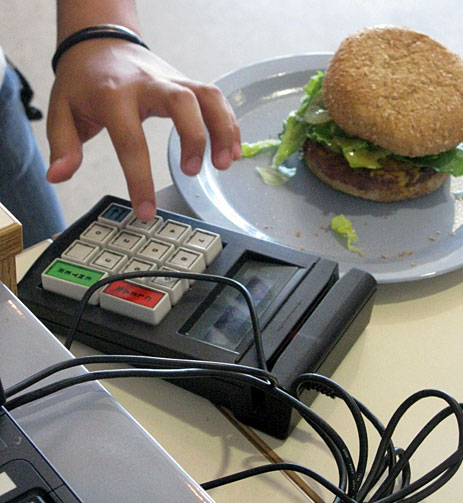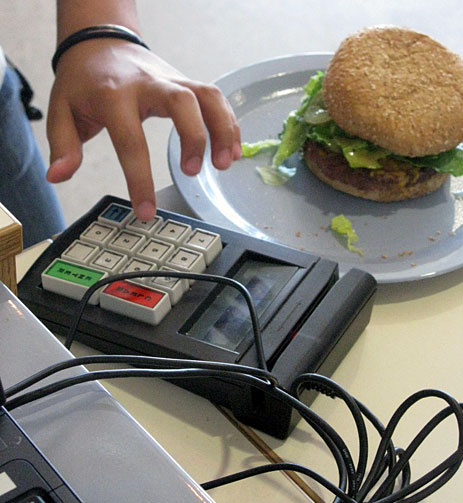Intrepid school-lunch reporter and parent-turned-school-food-activist Ed Bruske has hit the road again, this time traveling to Boulder, Colo. Check out Ed’s previous reporting on Washington, D.C. and Berkeley, Calif. public schools’ food at the Cafeteria Confidential: Behind the Scenes in School Kitchens series homepage.
 POS devicePhoto: Ed BruskeIn addition to the food prescribed by the federal government for subsidized meals — meat, vegetables, grains, milk — many schools offer a wide variety of fast-food items on the theory that these will boost sales and help finance struggling food-service programs. These foods can be sold separately (“a la carte”) or even in vending machines alongside subsidized meals, as long as the proceeds go to the school meals program.
POS devicePhoto: Ed BruskeIn addition to the food prescribed by the federal government for subsidized meals — meat, vegetables, grains, milk — many schools offer a wide variety of fast-food items on the theory that these will boost sales and help finance struggling food-service programs. These foods can be sold separately (“a la carte”) or even in vending machines alongside subsidized meals, as long as the proceeds go to the school meals program.
Because some students would rather not eat than be singled out as poor, some schools have taken steps to ensure that students who opt for the subsidized meal because they qualify for free or reduced-price food are not readily identified. Thus, hot meals and a la carte items are intermingled in so-called blended lunch lines. Ideally, cash never changes hands. Instead, students either pay in advance into cafeteria accounts, or are identified by a computer as being entitled to free or reduced-price meals. In Boulder, students simply enter a six-digit personal identification number into a point-of-sale device when they exit the lunch line, as shown in the photo here.
A kitchen employee monitors the transaction on a computer screen, while also checking to make sure that meals contain the necessary components to qualify the school for federal subsidies. To speed service and shorten lines at the steam tables, Boulder also has installed software that allows two students to check out simultaneously. Using the point-of-sale software also creates a record of food items students have purchased.
The Boulder Valley School District permits students and parents to make quick work of funding their meal accounts using a credit card online.




